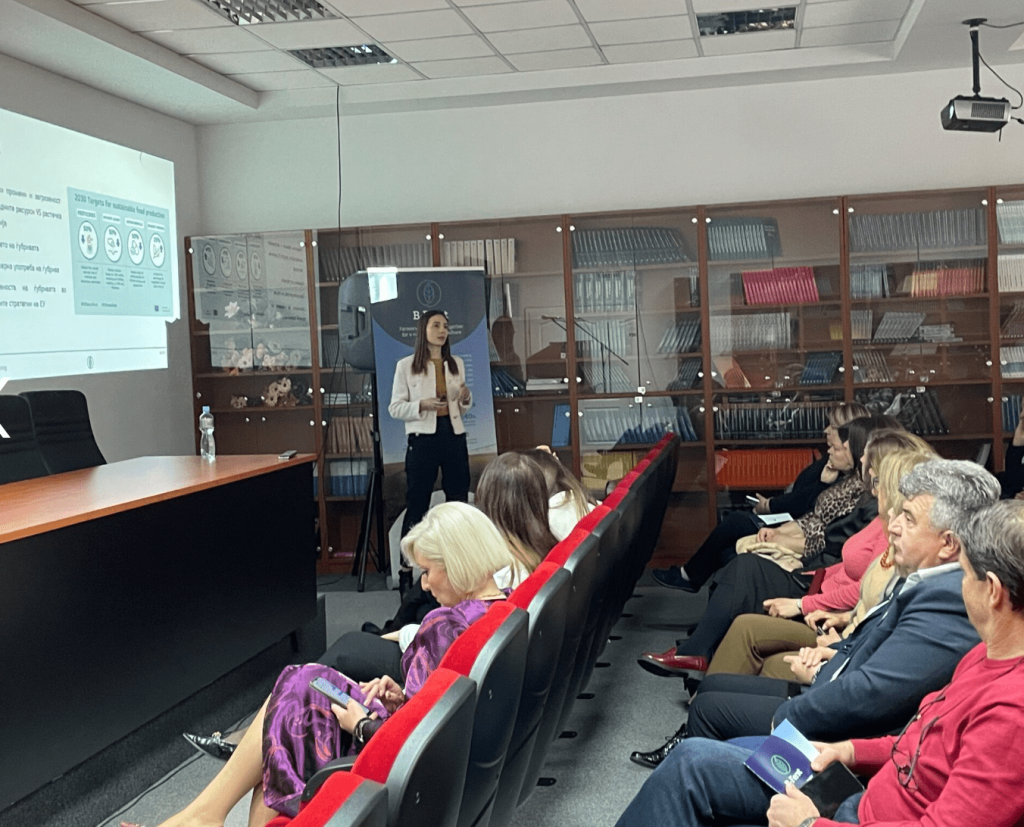PROJECT UPDATE - 03 April 2024
AgFutura hold a training session at the faculty of agriculture in Stip, Macedonia
Our planet faces unprecedented challenges, including climate change and the depletion of natural resources, all while striving to support a growing population. While fertilizers play a crucial role in boosting agricultural productivity, their excessive use can harm the environment by polluting soil, water, and air.
The B-FERST project is tackling this challenge head-on. By leveraging the potential of bio-waste, the B-FERST project aims to develop highly efficient fertilizer products that promote sustainable agricultural practices. These advanced bio-based fertilizers, enriched with plant bio-stimulants, will significantly reduce the carbon footprint and water and energy consumption.
Last week, AgFutura Technologies organized a training session titled “Developing Sustainable Business Models for Bio-based Fertilizers” at the Faculty of Agriculture, University “Goce Delcev” in Stip, Macedonia. The event brought together professors, students, government representatives, members of the National Extension Agency, and NGO stakeholders.
The discussion delved into the significance of fertilizers, considering both their benefits and potential negative impacts on soil, air, and water pollution. The B-FERST project was presented along with its key objectives: the necessity to transition from fossil resources towards a circular economy.
The training also focused on business models, their functions, and the tools that can be employed (e.g., Business Model Canvas). Participants addressed challenges in the market for new products, such as low public awareness of bio-based products and difficulties in communicating the benefits of these fertilizers due to a lack of data. To address these challenges, financial aspects were discussed, including the importance of monetary incentives for farmers and the development of new technologies to make phosphorus recovery more cost-effective and environmentally friendly.
See below the agenda in detail.
Agenda:
- The significance of fertilizers (their role in agricultural productivity and feeding the growing population)
- The negative impacts of their overuse for the soil, air and water pollution
- Fertilizers in relation to EU climate ambitions
- The importance of transitioning from fossil resources towards circular bioeconomy
- The contribution of Circular Bio-Based Europe JU and B-FERST in this regard
- The key objectives of B-FERST, its impact and Consortium
- The business model and its functions, including the Business Model Canvas as a widely used template for visualizing the business model
- The sustainable business model of the new bio-based fertilizer products developed within B-FERST
- The value proposition – a specific accent on the agronomic quality of the products and the decreased environmental footprint from the production process
- The market for the new products – discussion of challenges such as the low public awareness for bio-based products, lack of confidence among farmers, the bias; challenges in communicating the benefits of these products due to lack of data and the opportunities the co-creation as an approach for building Customer relationships offers (e.g. involving the farmers early in the activities of the project)
- The infrastructure for the new products – focus on the challenges that might arise given the core resource (biomass), related to its quality, availability, heterogeneity, and logistics; the key activities and partnerships necessary for providing the new bio-based fertilizers
- Financial aspects – the importance of the monetary attribute for farmers to switch from conventional to bio-based fertilizers, on one hand, and the challenge to develop new technologies to make the recovery of phosphorus cheaper and more environment-friendly.



